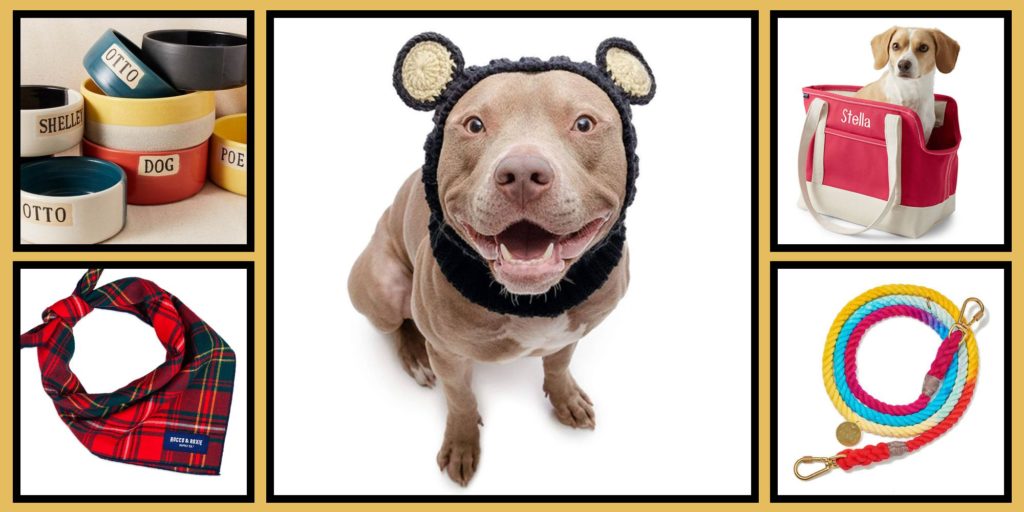In order to stop the dog from barking, you can do things like distracting him with other commands, play with him or give him a dog toy to play with. The aim should be to discourage the barking behavior. The use of an anti-bark dog collar should be the last choice.
Does your dog bark excessively? I’m going to share five tips that are going to stop and manage your dog to stop barking permanently.
So we’re talking about excessive barking. Those kind of barking that you’re saying, it drives you crazy and it’s for no reason. Your dog just barks and doesn’t listen to you. There are many reasons why dogs bark and also there are many situations in which a dog will bark.
Why Do Dogs Bark?
To be a good dog owner, your puppy should know when to be quiet and when to bark. Part of your job as a pet owner is to teach this to your dog. Begin working on the barking problem as soon as possible.
The longer you postpone, the more difficult it gets to control the behavior. If you have trained your dog and it continues to bark excessively at times, you will need to find out the causes of this behavior. Some of the causes of dog barking include:

#1 Fear
When your puppy is afraid, they will voice that fear through barking. That can take place at your home or away if something frightens your dog. It can be a loud noise, a strange situation or a person.
#2 Greeting
At times a greeting bark is normally a friendly bark. But it can become excessive when the greeting is offered to every person your dog meets.
#3 Bid for attention
Sometimes excessive barking could signal your dog needs to go out, is hungry, or needs some attention.
#4 Loneliness
Dogs are pack animals meaning they enjoy the company of others. When you leave them alone for a long time, they might bark a lot as a sign of boredom and unhappiness. A bored puppy that does not get enough mental and physical stimulation can also bark a lot.
#5 Separation anxiety
A dog that does not like being left alone might suffer from a condition known as separation anxiety. Apart from the repeated barking, a dog with this condition might also exhibit other compulsive habits.
#6 Aging dogs
As many dogs age, it is normal for them to start barking even more. Some senior dogs can start barking a lot for many hours without being aware of what they are doing.
#7 Territorial-ism
Your dog can easily become territorial if a new dog or person comes into what the dog considers their territory. A dog’s territory can range from their yard, their bed or even their home.
If your dog only barks at such situations, this might be the cause. They usually feel possessive of their space and would like to protect it.
Apart from canine cognitive dysfunction that is often likened to Alzheimer’s illness, most of the aging dogs could also have deafness, vision impairments, or body pains and aches that might lead to excessive barking. Check your dog to see if it has a tender spot anywhere; it will bark if you touch that area.
How to Stop Barking Behavior in Dogs
Today we’re focusing on the ones that just drive you crazy. So here are my tips to stop your dog from barking excessively which is going to help you to stop your dogs barking permanently. These tips come in handy especially when you are outside with your dog like international travel.
#1: Prevention is the Key
As a dog owner, you know your dog better than anybody else. You know that your dog will bark for a certain reason, in certain situations, in certain conditions, and in certain locations. You know that it’s going to bark, so you want to prevent your dog from getting into that environment or situation where he is going to bark. So, prevent the situation from happening.
#2: Don’t Let Your Dog to Practice That Unwanted Behavior
Don’t let your dog practice that unwanted behavior over and over again. Limit your dog’s environment and the situation.
For example, you know the mailman comes at nine o’clock and your dog goes crazy. Prevent your dog from getting to that zone that he expects the mailman at nine o’clock.
Remove him from the front door to somewhere else so that he doesn’t see or hear the mailman.
For example: If your dog is watching outside of the window and checks and sees who comes around and who goes around or waits for anybody to walk by and then starts barking. In that case, prevent your dog from getting to that zone, that environment or by the window.
Don’t let your dog to watch outside. Don’t come up with excuses that you can’t cover the window, can’t do anything about it. There’s always a solution.
- You can hang a low curtain on the bottom of the window, so your dog has no access viewing outside.
- Or you can put your dog in a different room.
- You can also leash your dog and do whatever you’re doing.
- If you’re in the kitchen, your dog could be in the kitchen.
#3: Manage Your Dog
If your dog is barking at people who are coming as soon as the doorbell goes off and your dog starts barking then we go to the next tip. Tip number three applies to all of the situations.
Don’t practice or correct your dog when your dog is actually barking, when he’s actually misbehaving. This is very important to understand that when your dog is barking or misbehaving is not the time to correct your dog. It’s not the time to train your dog. It’s not the time to teach your dog.
You want to manage your dog at that moment. If your dog is barking and you’re yelling at your dog to stop barking, you’re joining your dog, you’re barking as well.
The reason your dog is barking is that either he is not clear of what he is supposed to do in that situation. Or you have not communicated clearly to your dog what he’s supposed to do when certain situations happen.
Some dogs will bark during thunder, check our article on that topic and it will immensely help you in years to come.
#4: Teach Your Dog a Cue
When you’re saying something, this word could be anything, could be STOP IT, could be NO, could be cucumber, could be anything.
But you need to have taught this keyword to your dog beforehand. Your dog has to be familiar with this cue. So your dog knows and thinks that when I’m barking or when I’m doing this behavior and I hear this cue, I gotta stop.
Teach your dog or practice what you want your dog to do when is doing something wrong and replace that unwanted behavior with the behavior that you want to give your dog.
A couple of options: Either listen to what I’m saying or let’s play.
So you’re giving options to a dog to do something other than barking.
#5: Provide Something Else For the Dog to Do
If you don’t want your dog to bark teach it or let it know to do something else instead. For example, you can teach your dog to sit and stay or play on command.
Your dog associates it in the way that when I hear this, when I see these when I feel this, this is what I’m supposed to do. When I hear the doorbell I sit or I get to play with my dad or mom.
#6 Keep a Bark Journal
If your dog seems to be barking at everything he sees, or you aren’t sure what he is always barking at, you should consider keeping a dog bark diary. By doing this, you will be able to see a certain pattern. You can also ask your neighbors to do the same for you when you are not at home.
That will also help your neighbors know that you are trying your best to solve the problem before they can report to the authorities. You can also invest in smartphone or tablet apps as well as voice-activated recorders to monitor your dog to ascertain why your dog barks when you are away from home.
#7 Anti-bark Dog Collars
Anti-barking dog collars are designed to control a puppy’s barking. But how they work solely depends on the kind of anti-bark collar you buy. In general, an anti-barking dog collar can detect barking through sensing vibrations in the pet’s vocal cords.
Once this happens, the collar gives a stimulus to the puppy, warning them that this is the effect of barking.
There are three major types of anti-barking collars: citronella, ultrasonic and static shock. All the three collars fit securely against the neck of your dog when fitted correctly. Keep in mind that no-bark collars are not built to be left on your dog all the time.
Besides your dog may learn not to bark at all when the collar is on and resume the behavior once you remove it. However, it is significant both for proper training and for safety that the collar gets fitted by an experienced pet owner or by a professional.

#8 De-barking Surgical Procedure
Debarking, also known as cordectomy refers to an elective surgical operation that involves partial removal of the vocal cords of your dog. Debarking surgery does not take away the ability of a dog to bark, but it only makes it sound raspy and quieter. In most cases, debarking is unfair and unnecessary to your canine friend.
Anesthesia and surgical procedures are always risky, so any operation that doesn’t medically benefit the animal community or the patient but is entirely for your convenience should be avoided at all costs.
Besides, excessive barking is a clear indicator of an underlying problem that is typically behavioral. The surgical procedure can take away the noise, but the separation anxiety, fear, or other similar problems will remain unaddressed which is not fair to your dog.
Bonus Tip
Now I have a bonus tip as well. You need to understand the reason your dog is barking. It is because, in a way your dog is interacting with that situation, with that whatever is happening.
Some Examples:
- The dog sees a mailman coming it starts barking is interacting with the mailman and then all of a sudden the mailman is gone. So the interaction worked.
- People are passing by the window, I bark, I interact with them. People pass by and out they’re gone, interaction stops.
- The doorbell goes on, I bark people come in they play with me, they pet me. I interact with them.
There is some form of interaction happening when the dog is barking. You need to interact with your dog before, during and after the behavior repeats. You can either shout at your dog or get physical with your dog.
Or you can take that opportunity and ask your dog to do something that you want it to do. So replace it with something that you want your dog to do.
Don’ts when curbing your dog’s barking behavior
- Don’t utilize inconsistency rules when training your dog to stop barking. If you shout at your dog for barking at some sounds and sights and encourage him to bark at others, it will be difficult to distinguish between both situations, meaning you will have a constantly barking dog.
- Avoid encouraging your puppy to bark at people or strangers walking into your home. If you do this, you will arouse their curiosity every time a person walks to your door which will make them bark all the time.
- Do not punish your pet if he is barking due to separation anxiety or fear. By doing this, you might increase his anxiety, and consequently his barking. You can consult your veterinarian or a behavior professional to give you specific guidelines for correcting this annoying behavior.
- Avoid making your muzzles using rubber bands or ropes because it can be incredibly cruel and dangerous for your dog.
- Avoid using a muzzle when you are away from home or as a substitute during training. Remember that your dog regulates his body temperature through the mouth by constantly panting, and a muzzle can prevent your dog from breathing normally as well as eating and drinking water.
Learn More With the Help of Video
Conclusion
I hope these tips are going to help you with your dog who’s barking and is driving you crazy. Just follow these five steps and you will have a dog who’s going to stop barking. You’re going to have an easier time managing your dog’s excessive barking.
References
- https://drsophiayin.com/app/uploads/2015/04/SYinBarkingAbstract.pdf
- https://muse.jhu.edu/article/719856/summary
Table of Contents




